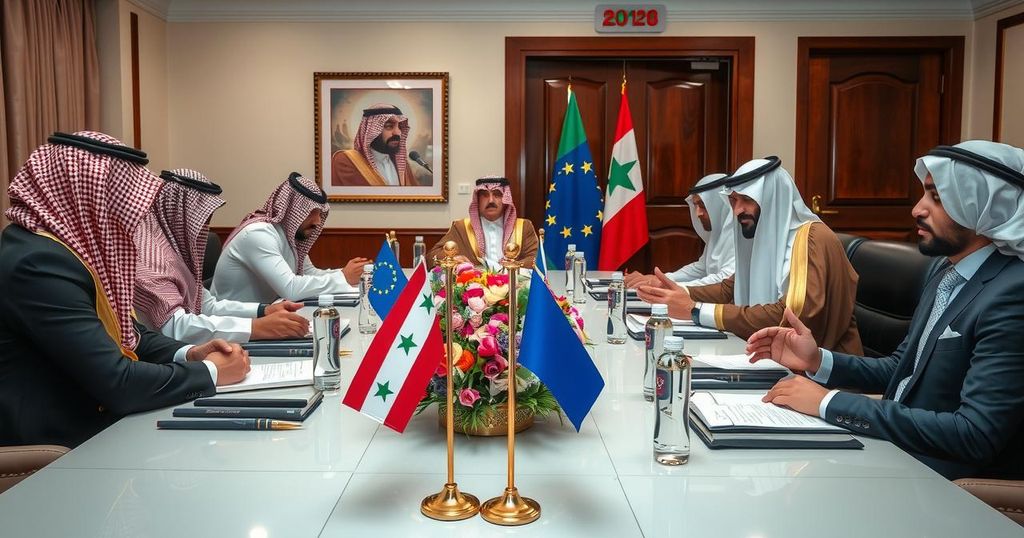Arab and EU diplomats will meet in Riyadh to discuss support for Syria’s new leadership under Ahmed al-Sharaa, focusing on potential sanctions relief, contingent upon governance reforms. The talks will occur in two sessions, involving regional and global stakeholders as efforts continue to stabilize a nation ravaged by over a decade of civil war.
On Sunday, top diplomats from the Arab world and Europe will convene in Riyadh, Saudi Arabia, to deliberate on the critical situation in Syria following the recent power transition. The discussions will unfold in two distinct sessions: the inaugural session will focus exclusively on Arab representatives, while the follow-up session will include broader participation from nations such as Turkey, France, the European Union, and the United Nations, as reported by a Saudi official.
The meeting comes on the heels of Ahmed al-Sharaa assuming leadership in Syria after the ousting of Bashar al-Assad last month. Al-Sharaa is advocating for the easing of sanctions imposed on Assad’s regime due to its violent responses to protests which spiraled into civil war over a decade ago. The Western powers, notably the United States and the European Union, had enforced these sanctions in 2011 amid widespread human rights violations.
Syria has endured a devastating civil war that has lasted over 13 years, resulting in over half a million casualties, significant economic deterioration, and mass displacement of citizens, many of whom sought refuge in Europe. The recent political shift in Syria, marked by the rise of Ahmed al-Sharaa, presents a new opportunity for international diplomacy aimed at restoring stability in the region. The ongoing discussions in Riyadh are part of broader efforts to evaluate the potential for lifting sanctions against Syria’s new government contingent on their commitment to forming a more inclusive and minority-protective governance structure.
The diplomatic meetings in Saudi Arabia are significant given the historical context of the Syrian conflict and the humanitarian crises that have stemmed from it. As the newly appointed Syrian leadership attempts to foster a more inclusive government, the potential for sanction relief from the European Union and other nations hinges on their commitment to reform. The outcome of these discussions will be pivotal in shaping Syria’s future and its relations with global powers.
Original Source: www.scmp.com






